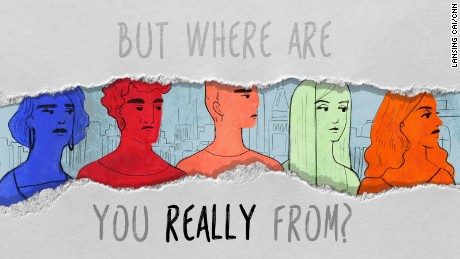That Could Have Been Worse...We talked...
This week had many interesting topics covered and questions answered or asked. We talked about the movies Documented and White People. We discussed what others first thought about another just by looking at them and our social location. We talked about quotes and how it made us feel or think. I emphasized "we talked" because this week there was a lot of discussion about things that could have went south. Wether someone held back their opinion or stated one and no one rebutted, the conversations and atmosphere about uncomfortable topics remained calm.
 |
| https://drive.google.com/file/d/1UniNteiDdEHqYQ_VjuRH1A8e-hGRURkE/view |
Watching the film
Documented (link within name), I took in some information that was quite challenging or intersting for me to hear. Some information I heard was that President Obama deported more than 2 million immigrants, more than any other president, Jose is Gay (although this one wasn't all that surprising, he just confirmed what I had originally thought as he was speaking throughout the film), and a (at the time) new illegal immigration law that allowed officials to check the immigration status of students in public schools [...] determine wether someone is in the country illegally. I could go on and on about what news shocked or interested me, but I won't for the sake of length. Truth be told, Jose is strong in his opinion, and he is not wrong for that. I agree with Jose on some of his points. What I did have an issue with is that it seemed as though he was attacking people about this topic. I get that he has to get his appoint across and has to fight for the cause, it is admirable, but he just comes off really strong about it even in casual conversation.
 |
| https://drive.google.com/file/d/1UniNteiDdEHqYQ_VjuRH1A8e-hGRURkE/view |
As I've said before, it seemed as though Jose would attack (not literally but verbally) others on their opinion about immigration, but as the film went on I started to noticed that others would attack him verbally also. This older gentleman kept talking about him being an illegal alien and Jose didn't even get the chance to say what he needed to say. Even later in the film another man (who was drunk) started a conversation with Jose after making comments about how illegal immigrants should leave. Jose this time was able to defend himself. I mentioned all of that to say this: there are times when you can try to speak and get your point across without asking a lot of questions or over speaking to someone, and there are times when you should.
 |
| https://drive.google.com/file/d/1UniNteiDdEHqYQ_VjuRH1A8e-hGRURkE/view |
In the classroom, I was able to bing out some of these points mentioned above. My group and I also talked about some quotes and one of them really peeked my interest. "Where are you from? No, where are you FROM from?" If I were ever asked this question, I would be slightly confused and not know what to say. Yes, I was born and raised here in Georgia, other than that, that is all I know. My family doesn't have records, all we have are stories from our parents and when they grew up, what it was like for them during their time. I do feel as though this question is a bit insensitive.
 |
| https://defineamerican.com/stories/view/carmen-urbina/ |
Everybody has a story living here in America, wether you were born here or moved here under any circumstances. Carmen Urbina, for example, I heard her story from the site
Define America (link within name). She is a Latina indigenous woman who was brought over to the U.S. in the 1st grade. Eventually, ISIS came and got here from school, and she voluntarily deported. While her stay was no longer than 6 years, she mentioned how she was scared to go to school because she did not know the language and no one took the time to teach her or befriend her. Communication was hard with the teachers, but once lady stood out: Hope Gardel. Carmen described her as a white, blond, blue eyed woman. Ms. Gardel gave hope to Carmen by saying she could be or do whatever she wanted. Once Carmen got deported, she realized that back in her own country there were doctors and people of other fields that looked just like her. She said that success looked different. She is proud to be a Latino, as she should be.
Personal Reflection
It's amazing to hear the many stories that people have to share. You never know what someone has been through unless you ask. It's important that we do not take what we have for granted. I feel so caught up in my own life that it's hard to see others. It then becomes a question on how you can impact others. It's hard to do so right now because all you can be focused on is your grades and graduating college within hopefully 4-5 years. All I can do is impact one person's life at a time as they enter mines or if I enter theirs. I only hope that whatever impact I do make, will make it easier on someone who is going through something, as we all are.








I agree that Vargas does sometimes come off a bit strong when speaking on the issue of immigration. He's definitely very left-leaning, (not that there is anything wrong with that) and he can often come across as sort of aggressive with his views.
ReplyDelete